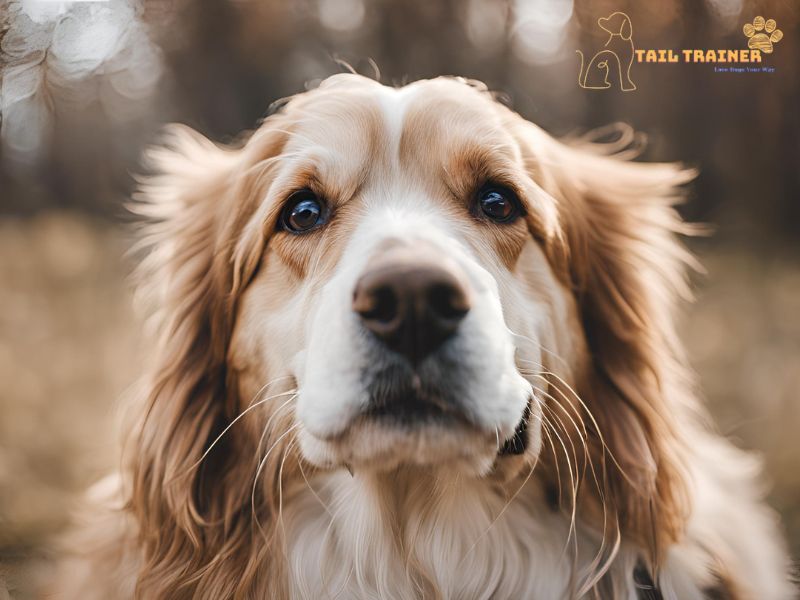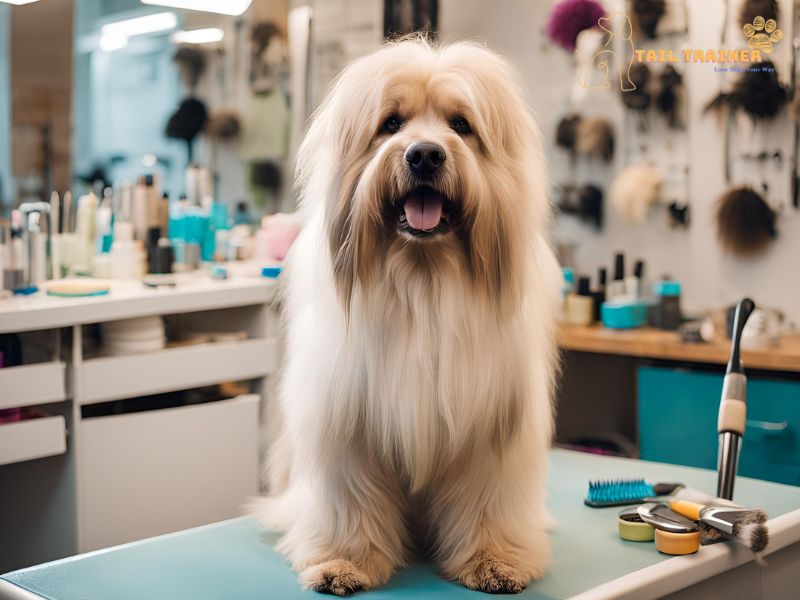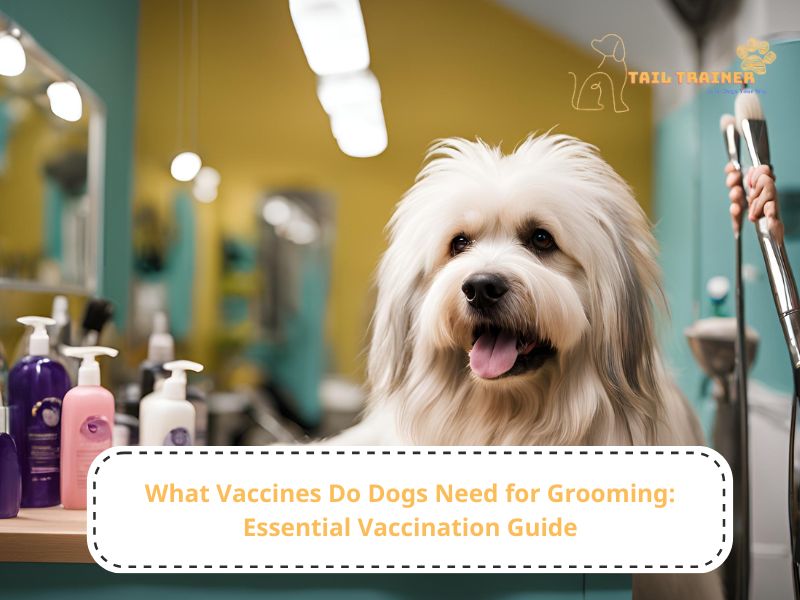What vaccines do dogs need for grooming? This is an important question for dog owners planning their pet’s grooming sessions. Before stepping into a grooming salon, dogs need certain vaccinations to protect themselves and others. Understanding which vaccines are required ensures safety and prevents potential health risks.
Key Takeaways
For grooming, dogs need vaccines such as rabies, distemper, parvovirus, and bordetella. These vaccines help protect against contagious diseases that may spread in grooming salons.
Vaccines Required for Dog Grooming

Before taking your dog to a grooming salon, it’s essential to know which vaccines are mandatory to keep your dog safe and healthy.
Core Vaccines for Dog Grooming
Core vaccines are those that every dog should receive, regardless of lifestyle or grooming habits. These vaccines protect dogs from severe diseases that are often highly contagious.
Rabies Vaccine
The rabies vaccine is required by law in most places and is crucial for dogs, not only for grooming but also for general safety. Rabies is a fatal viral disease that can spread to humans through bites or saliva.
- Timing: Dogs typically receive their first rabies shot at 12-16 weeks of age, followed by boosters every 1-3 years.
- Importance: Most grooming salons will not accept a dog without proof of rabies vaccination, as it is crucial for the safety of the groomers and other pets.
Distemper Vaccine
The distemper vaccine protects against a serious viral infection affecting the respiratory, gastrointestinal, and nervous systems of dogs.
- Timing: The distemper vaccine is given in a series, starting at 6-8 weeks of age, with boosters at 3-4 week intervals until 16 weeks. Adult dogs require booster shots every 1-3 years.
- Relevance for Grooming: Grooming environments can expose dogs to distemper, making this vaccine essential to ensure a safe grooming session.
Parvovirus Vaccine
The parvovirus vaccine protects against a highly contagious virus that causes severe gastrointestinal illness in dogs. This disease is commonly found in shared spaces like grooming salons, making vaccination critical.
- Timing: The parvovirus vaccine is often given as part of a combination shot, beginning at 6-8 weeks of age, with boosters until 16 weeks. Adult dogs need boosters every 1-3 years.
- Protection During Grooming: Given the contagious nature of parvovirus, most groomers will require proof of this vaccine before grooming.
Additional Vaccines for Grooming
While core vaccines are mandatory, additional vaccines are often recommended to enhance safety during grooming.
Bordetella Vaccine
The bordetella vaccine protects against kennel cough, a highly contagious respiratory infection common in places where dogs gather, such as grooming salons.
- Timing: Dogs can receive the bordetella vaccine as early as 8 weeks old, with boosters every 6-12 months, depending on exposure risk.
- Importance in Grooming: Since grooming involves close contact between dogs, the bordetella vaccine is often required by groomers to prevent outbreaks of kennel cough.
Canine Influenza Vaccine
The canine influenza vaccine protects against canine flu, which is spread through respiratory secretions. Dogs can easily catch the virus in crowded places like grooming salons.
- Timing: The canine influenza vaccine is given in two doses, spaced 2-4 weeks apart, with annual boosters recommended.
- Relevance in Grooming: While not always mandatory, this vaccine is highly recommended to prevent flu outbreaks among dogs in shared spaces.
Why Vaccinations Are Necessary for Grooming

Vaccinations are not just about following rules—they are about protecting the health and well-being of your dog and other dogs at the grooming salon.
Preventing Disease Transmission
Grooming salons can be hotspots for disease transmission due to the close proximity of dogs, shared equipment, and limited space. Vaccines help minimize the risk of diseases like parvovirus, kennel cough, and canine influenza spreading among dogs.
Protecting Your Dog’s Health
Vaccines prepare your dog’s immune system to fight off potential infections. This means that even if your dog is exposed to a virus at the grooming salon, they are less likely to develop severe symptoms.
Ensuring a Stress-Free Grooming Experience
Knowing your dog is fully vaccinated provides peace of mind, allowing you to focus on their grooming session without worrying about potential health risks.
Preparing Your Dog for Grooming Visits
In addition to vaccinations, proper preparation can help ensure a smooth grooming experience for your dog.
Check Vaccination Records
Before booking a grooming appointment, review your dog’s vaccination records to ensure they are up to date. Most groomers will ask for proof of vaccinations, so having this information ready can save time and avoid any scheduling delays.
Key Vaccination Documents to Bring
- Rabies Certificate
- Vaccination Records for Distemper, Parvovirus, and Bordetella
- Canine Influenza Vaccination Proof (if applicable)
Socialize Your Dog
A well-socialized dog is more likely to have a positive grooming experience. Exposing your dog to various sounds, smells, and handling can make them more comfortable during grooming.
How to Socialize Your Dog for Grooming
- Play with water: Get your dog used to water by gently spraying them or introducing them to a shallow tub at home.
- Touch sensitivity: Handle your dog’s paws, ears, and tail regularly to reduce sensitivity to grooming.
- Noise exposure: Play the sound of clippers or dryers at a low volume to help your dog acclimate to grooming noises.
Communicate with Your Groomer
Inform the groomer about your dog’s vaccination status, temperament, and any specific needs. This will help the groomer tailor the session to ensure safety and comfort.
What to Do If Your Dog Is Not Fully Vaccinated
If your dog hasn’t completed their vaccinations but needs grooming, there are still safe ways to ensure proper care.
At-Home Grooming
Consider basic at-home grooming until your dog is fully vaccinated. This includes:
- Brushing: Regular brushing keeps the coat healthy and reduces matting.
- Bathing: Use dog-safe shampoos for at-home baths.
- Nail Trimming: Carefully trim nails with the right tools.
Mobile Grooming Services
Some mobile groomers offer services that come directly to your home, reducing exposure to other dogs and ensuring a safer environment for dogs that are not fully vaccinated.
Frequently Asked Questions
1. What vaccines are required for dog grooming?
Dogs need core vaccines like rabies, distemper, parvovirus, and bordetella for grooming. Additional vaccines like canine influenza are recommended for added safety.
2. How often should my dog be vaccinated for grooming?
Core vaccines are typically given every 1-3 years, while additional vaccines like bordetella may require boosters every 6-12 months.
3. Can I groom my dog at home if they are not fully vaccinated?
Yes, basic at-home grooming is a safe option until your dog completes their vaccinations. Regular brushing, bathing, and nail trimming can be done at home.
4. Why do groomers require proof of vaccinations?
Groomers require proof of vaccinations to prevent the spread of contagious diseases, ensuring the safety of all dogs and staff in the salon.
5. What happens if my dog is exposed to an unvaccinated dog at the grooming salon?
If your dog is fully vaccinated, the risk of severe illness is significantly reduced. However, it’s always best to follow up with your vet if you suspect exposure to a contagious disease.
For more guidance on dog grooming, vaccination requirements, and overall pet care, visit TailTrainer regularly. We’re here to ensure your furry friend stays happy, healthy, and well-groomed!
